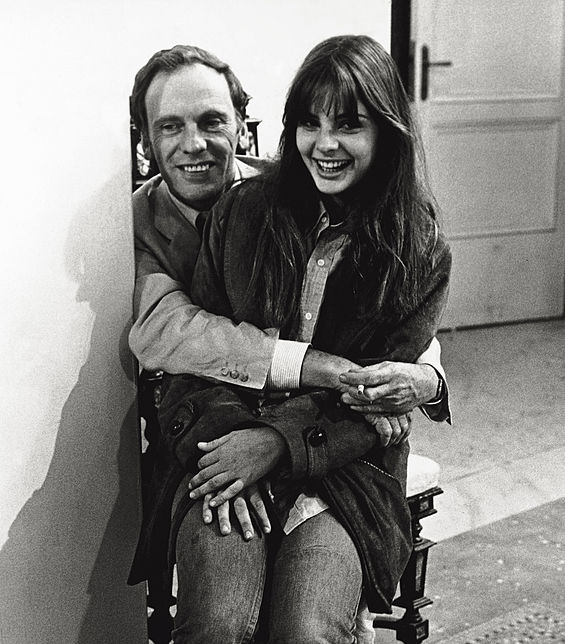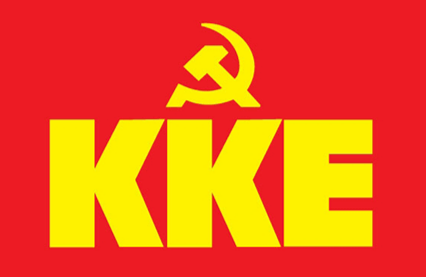|
Costa Gavras
Costa-Gavras (short for Konstantinos Gavras; el, ╬ÜŽē╬ĮŽāŽä╬▒╬ĮŽä╬»╬Į╬┐Žé ╬ō╬▒╬▓Žü╬¼Žé; born 12 February 1933) is a Greek-French film director, screenwriter, and producer who lives and works in France. He is known for films with political and social themes, such as the political thriller '' Z'' (1969), for which he won an Academy Award for Best Foreign Language Film, and '' Missing'' (1982), for which he won the Palme d'Or and an Academy Award for Best Adapted Screenplay. Most of his films have been made in French; however, six of them were made in English. His film ''Z'' was the first film, and one of the few, to be nominated for both the Best Picture and Best Foreign Language Film. Early life Costa-Gavras was born in Loutra Iraias, Arcadia. His family spent the Second World War in a village in the Peloponnese, and moved to Athens after the war. His father had been a member of the Pro-Soviet branch of the Greek Resistance, and was imprisoned during the Greek Civil War. ... [...More Info...] [...Related Items...] OR: [Wikipedia] [Google] [Baidu] |
Iraia
Iraia ( el, ╬ŚŽü╬▒╬»╬▒) is a former municipality in Arcadia, Peloponnese, Greece. Since the 2011 local government reform it became a municipal unit of the municipality of Gortynia. The municipal unit has an area of 144.002 km2. It consists of 27 villages. Population 1,552 (2011). The seat of the municipality was in Paloumpa. The municipality is named after the ancient Arcadian city of Heraia. The region was known in recent times for the construction workers (''mastori'') who came from the villages of Servos and Lyssarea. Pausanias describes the ancient cities of Heraia and Melaineai and their buildings.Pausanias ''Description of Greece'' 8.26 An excavation near Lyssarea uncovered buildings, mosaics, as well as gold and silver coins. Notable people The village of Loutra Iraias is the birthplace of the film-maker Constantinos Gavras (Costa-Gavras Costa-Gavras (short for Konstantinos Gavras; el, ╬ÜŽē╬ĮŽāŽä╬▒╬ĮŽä╬»╬Į╬┐Žé ╬ō╬▒╬▓Žü╬¼Žé; born 12 February 1933) is a Greek ... [...More Info...] [...Related Items...] OR: [Wikipedia] [Google] [Baidu] |
Arcadia (regional Unit)
Arcadia ( el, ╬æŽü╬║╬▒╬┤╬»╬▒, ''Arkad├Ła'' ) is one of the regional units of Greece. It is part of the administrative region of Peloponnese. It is in the central and eastern part of the Peloponnese peninsula. It takes its name from the mythological figure Arcas. In Greek mythology, it was the home of the god Pan. In European Renaissance arts, Arcadia was celebrated as an unspoiled, harmonious wilderness. Geography Arcadia is a rural, mountainous regional unit comprising about 18% of the land area of the Peloponnese peninsula. It is the peninsula's largest regional unit. According to the 2011 census, it has about 86,000 inhabitants; its capital, Tripoli, has about 30,000 residents in the city proper, and about 47,500 total in the greater metropolitan area. Arcadia consists partly of farmland, and to a larger extent grassland and degenerated shrubland. It also has three mountain ranges, with forestation mainly at altitudes above 1000 meters: Mainalo, a winter ski resort, sit ... [...More Info...] [...Related Items...] OR: [Wikipedia] [Google] [Baidu] |
Yves Montand
Ivo Livi (), better known as Yves Montand (; 13 October 1921 ŌĆō 9 November 1991), was an Italian-French actor and singer. Early life Montand was born Ivo Livi in Monsummano Terme, Italy, to Giovanni Livi, a broom manufacturer, Ivo held strong Communist beliefs. Montand's mother Giuseppina Simoni was a devout Catholic. The family left Italy for France in 1923 following Benito Mussolini's Fascist regime. He grew up in Marseille, where, as a young man, he worked in his sister's beauty salon (Salon de Coiffure), and later on the docks. He began a career in show business as a music-hall singer. In 1944, he was discovered by ├ēdith Piaf in Paris and she made him part of her act. Career Montand achieved international recognition as a singer and actor, starring in many films. His recognizably crooner songs, especially those about Paris, became instant classics. He was one of the best known performers at Bruno Coquatrix's Paris Olympia music hall, and toured with musicians inclu ... [...More Info...] [...Related Items...] OR: [Wikipedia] [Google] [Baidu] |
Jean-Louis Trintignant
Jean-Louis Xavier Trintignant (; 11 December 1930 ŌĆō 17 June 2022) was a French actor. He made his theatrical debut in 1951, and went on to be regarded as one of the best French dramatic actors of the post-war era. He starred in many classic films of European cinema, and worked with many prominent auteur directors, including Roger Vadim, Costa-Gavras, Claude Lelouch, Claude Chabrol, Bernardo Bertolucci, ├ēric Rohmer, Fran├¦ois Truffaut, Krzysztof Kie┼ølowski, and Michael Haneke. He made a critical and commercial breakthrough in '' And God Created Woman'' (1956), followed by a starmaking romantic turn in ''A Man and a Woman'' (1966), and '' The Great Silence'' (1968). He won the Silver Bear for Best Actor at the 1968 Berlin International Film Festival for his performance in '' The Man Who Lies'' and the Best Actor Award at the 1969 Cannes Film Festival for Costa-Gavras's ''Z''. Trintignant's other notable films include, '' My Night at Maud's'' (1969), '' The Conformist'' (197 ... [...More Info...] [...Related Items...] OR: [Wikipedia] [Google] [Baidu] |
5th Moscow International Film Festival
The 5th Moscow International Film Festival was held from 5 to 20 July 1967. The Grand Prix was shared between the Soviet film '' The Journalist'', directed by Sergei Gerasimov and the Hungarian film ''Father'', directed by Istv├Īn Szab├│. The festival line-up included the film ''Spellbound Wood'', directed by Norodom Sihanouk, the former King of Cambodia. Jury * Sergei Yutkevich (USSR - President of the Jury) * Rom├Īn Vi├▒oly Barreto (Argentina) * Aleksey Batalov (USSR) * Lucyna Winnicka (Poland) * Todor Dinov (Bulgaria) * Hagamasa Kawakita (Japan) * Leslie Caron (France) * Andr├Īs Kov├Īcs (Hungary) * Grigori Kozintsev (USSR) * Robert Hossein (France) * Ji┼Ö├Ł Sequens (Czechoslovakia) * Dimitri Tiomkin (USA) * Andrew Thorndike (East Germany) * Leonardo Fioravanti (Italy) Films in competition The following films were selected for the main competition: Awards * Grand Prix: ** '' The Journalist'' by Sergei Gerasimov ** ''Father'' by Istv├Īn Szab├│ * Special Golden Prize: '' ... [...More Info...] [...Related Items...] OR: [Wikipedia] [Google] [Baidu] |
Shock Troops (film)
''Shock Troops'' (french: Un homme de trop) is a 1967 French-Italian action drama film directed by Costa-Gavras. It was entered into the 5th Moscow International Film Festival. Film producer Harry Saltzman has a "presented by" credit. Plot Set in central France, the film follows French resistance fighters who press the battle on the Germans. Along the way, they break into a prison and release some German prisoners, but discover there may be a spy planted to flush them all out. Cast * Charles Vanel as Passevin * Bruno Cremer as Cazal * Jean-Claude Brialy as Jean * Michel Piccoli as The Extra Man * G├®rard Blain as Thomas * Claude Brasseur as Groubec * Jacques Perrin as Kerk * Fran├¦ois P├®rier as Moujon * Claude Brosset as Ouf * Pierre Cl├®menti as Lucian * Michel Creton as Solin * Paolo Fratini as Philippe * Julie Dassin as Girl * Nino Segurini as Lecocq * Marc Porel Marc Michel Marrier de Lagatinerie (3 January 1949 – 15 August 1983), known professionally as Marc P ... [...More Info...] [...Related Items...] OR: [Wikipedia] [Google] [Baidu] |
The Sleeping Car Murders
''The Sleeping Car Murders'' (also known as ''The Sleeping Car Murder'', French title: ''Compartiment tueurs'') is a 1965 French mystery film directed by Costa-Gavras from the novel by S├®bastien Japrisot. It stars Yves Montand, Simone Signoret, Michel Piccoli, Jean-Louis Trintignant, Catherine All├®gret, Jacques Perrin, Charles Denner and Pascale Roberts. This film was the first movie for Costa-Gavras, to be followed later by other, more politically-oriented work. Plot The film begins with a young woman, Bambi ( Catherine All├®gret), boarding a train from Avignon to Paris. Also on her compartment are her fellow passengers, Ren├® Cabourg (Michel Piccoli), Georgette Thomas (Pascale Roberts), Rivolani ( Paul Pavel), and famed actress ├ēliane Darr├©s (All├®gretŌĆÖs real-life mother Simone Signoret). She also meets Daniel (Jacques Perrin), a stowaway en route to Paris. After helping him avoid the ticket inspector, she allows him to sleep in an empty compartment above hers. Upon re ... [...More Info...] [...Related Items...] OR: [Wikipedia] [Google] [Baidu] |
Ren├® Clair
Ren├® Clair (11 November 1898 ŌĆō 15 March 1981), born Ren├®-Lucien Chomette, was a French filmmaker and writer. He first established his reputation in the 1920s as a director of silent films in which comedy was often mingled with fantasy. He went on to make some of the most innovative early sound films in France, before going abroad to work in the UK and USA for more than a decade. Returning to France after World War II, he continued to make films that were characterised by their elegance and wit, often presenting a nostalgic view of French life in earlier years. He was elected to the Acad├®mie fran├¦aise in 1960. Clair's best known films include '' Un chapeau de paille d'Italie'' (''The Italian Straw Hat'', 1928), '' Sous les toits de Paris'' (''Under the Roofs of Paris'', 1930), ''Le Million'' (1931), ''├Ć nous la libert├®'' (1931), ''I Married a Witch'' (1942), and ''And Then There Were None'' (1945). Early life Ren├® Clair was born and grew up in Paris in the district of Les ... [...More Info...] [...Related Items...] OR: [Wikipedia] [Google] [Baidu] |
Jean Giono
Jean Giono (30 March 1895 ŌĆō 8 October 1970) was a French writer who wrote works of fiction mostly set in the Provence region of France. First period Jean Giono was born to a family of modest means, his father a cobbler of Piedmontese descent and his mother a laundry woman. He spent the majority of his life in Manosque, Alpes-de-Haute-Provence. Forced by family needs to leave school at the age of sixteen and get a job in a bank, he nevertheless continued to read voraciously, in particular the great classic works of literature including the Bible, Homer's ''Iliad'', the works of Virgil, and the ''Tragiques'' of Agrippa d'Aubign├®. He continued to work at the bank until he was called up for military service at the outbreak of World War I, and the horrors he experienced on the front lines turned him into an ardent and lifelong pacifist. In 1919, he returned to the bank, and a year later, married a childhood friend with whom he had two children. Following the success of his first pu ... [...More Info...] [...Related Items...] OR: [Wikipedia] [Google] [Baidu] |
Yves All├®gret
Yves All├®gret (13 October 1905 ŌĆō 31 January 1987) was a French film director, often working in the film noir genre. He was born in Asni├©res-sur-Seine, Hauts-de-Seine and died in Paris. He was an assistant to film directors such as his brother Marc All├®gret, Augusto Genina, and Jean Renoir. Filmography Feature films * ''Tobias Is an Angel'' (1940) * '' The Emigrant'' (dir. L├®o Joannon, 1940) * '' Box of Dreams'' (1945) * ''Les d├®mons de l'aube'' (1946) * ''D├®d├®e d'Anvers'' (1948) * '' Une si jolie petite plage'' (1949) * '' Man├©ges'' (1950) * '' Les Miracles n'ont lieu qu'une fois'' (1951) * ''Leathernose'' (1952) * ''La Jeune Folle'' (1952) * ''The Proud and the Beautiful'' (1953) * '' Oh No, Mam'zelle'' (1954) * ''Oasis'' (1955) * '' The Best Part'' (1956) * ''M├®fiez-vous fillettes'' (1957) * '' Send a Woman When the Devil Fails'' (1957) * ''The Daughter of Hamburg'' (1958) * ''The Restless and the Damned'' (1959) * '' Jack of Spades'' (1960) * ''Konga Yo ''Kon ... [...More Info...] [...Related Items...] OR: [Wikipedia] [Google] [Baidu] |
Communist Party Of Greece
The Communist Party of Greece ( el, ╬Ü╬┐╬╝╬╝╬┐Žģ╬Į╬╣ŽāŽä╬╣╬║Žī ╬ÜŽī╬╝╬╝╬▒ ╬Ģ╬╗╬╗╬¼╬┤╬▒Žé, ''Kommounistik├│ K├│mma Ell├Īdas'', KKE) is a political party in Greece. Founded in 1918 as the Socialist Labour Party of Greece and adopted its current name in November 1924. It is the oldest political party in modern Greek politics. The party was banned in 1936, but played a significant role in the Greek resistance and the Greek Civil War, and its membership peaked in the mid-1940s. Legalization of the KKE was restored following the fall of the Greek military junta of 1967ŌĆō1974. The party has returned MPs in all elections since its restoration in 1974, and took part in a coalition government in 1989 when it got more than 13% of the vote. History Foundation The October Revolution of the Bolsheviks in Russia in 1917 gave impetus for the foundation of Communist parties in many countries globally. The KKE was founded on 4 November 1918 as the Socialist Labour Party of Greece ... [...More Info...] [...Related Items...] OR: [Wikipedia] [Google] [Baidu] |
Greek Civil War
The Greek Civil War ( el, ╬┐ E╬╝ŽåŽŹ╬╗╬╣╬┐Žé ĀŽī╬╗╬Ą╬╝╬┐Žé}, ''o Emf├Įlios'' 'P├│lemos'' "the Civil War") took place from 1946 to 1949. It was mainly fought against the established Kingdom of Greece, which was supported by the United Kingdom and the United States and won in the end. The losing opposition held a self-proclaimed people's republic, the Provisional Democratic Government of Greece, which was governed by the Communist Party of Greece (KKE) and its military branch, the Democratic Army of Greece (DSE). The rebels were supported by Yugoslavia and the Soviet Union. The war has its roots at the WW2 conflict, between the communist-dominated left-wing resistance organisation, the EAM-ELAS, and loosely-allied anticommunist resistance forces. It later escalated into a major civil war between the state and the communists. Fighting resulted in the defeat of the DSE by the Hellenic Army. The civil war resulted from a highly-polarised struggle between left and right ideologies ... [...More Info...] [...Related Items...] OR: [Wikipedia] [Google] [Baidu] |




